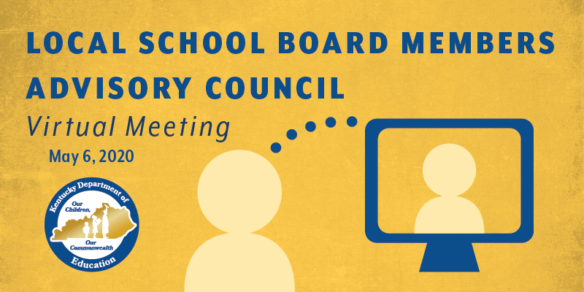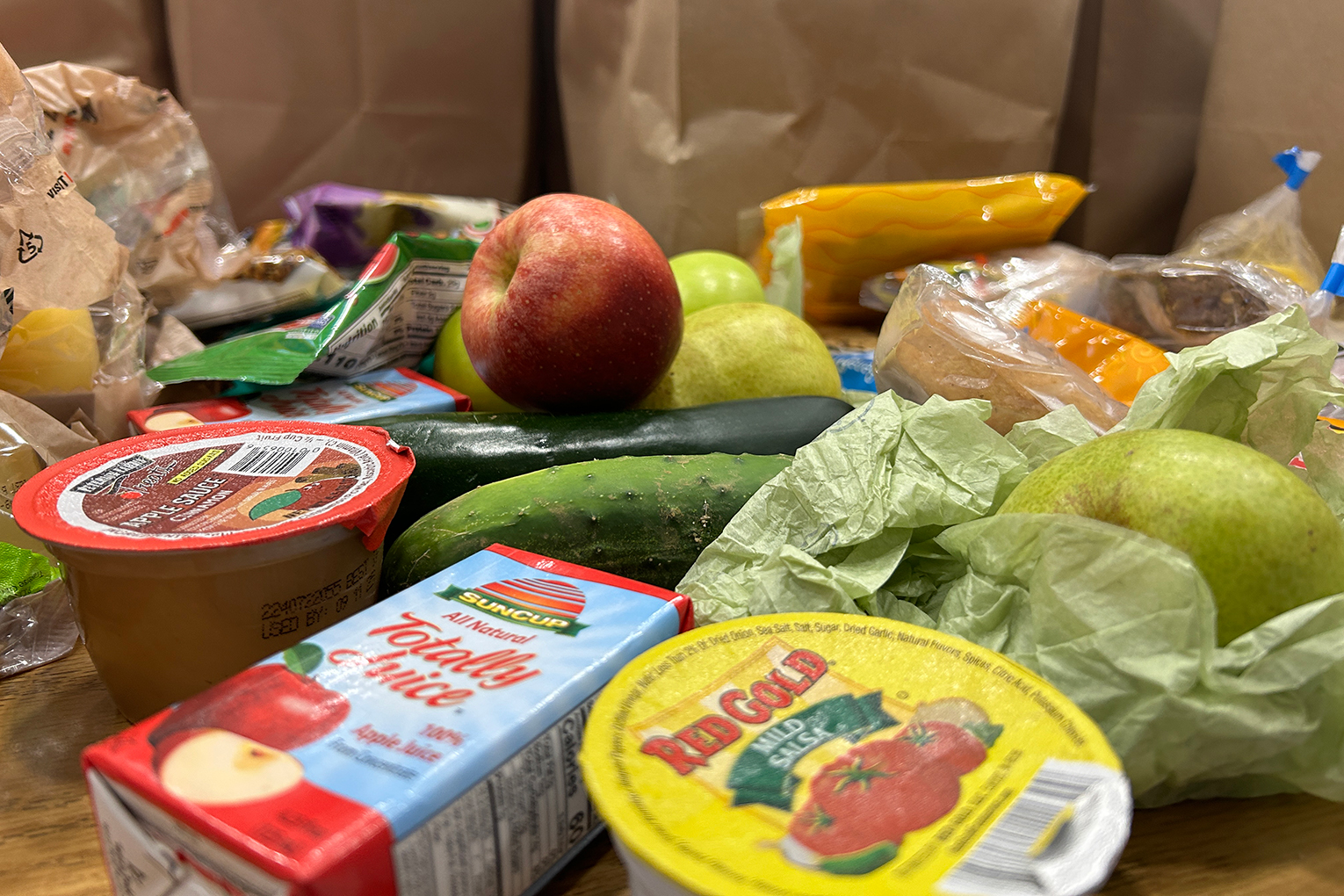
- Kentucky Department of Education staff members anticipate a need for greater remediation and intervention when students return to in-person classes.
- Educators may need to spend additional time talking with students about how they are feeling, assuring them they are safe and reacclimating them to a structured school day.
By Mike Marsee
mike.marsee@education.ky.gov
Meeting the academic and mental health needs of students will be a top priority for the staff of the Kentucky Department of Education (KDE) as the agency helps schools and districts prepare for the eventual return of students to their classrooms.
KDE staff members addressed issues within both areas May 6 during a virtual meeting of the Local School Board Members Advisory Council.
Kelly Foster, the associate commissioner in KDE’s Office of Continuous Improvement and Support, said the agency is working to develop guidance for schools and districts that will help them address possible academic gaps and mental health concerns that might result from the COVID-19 emergency as they prepare to reopen.
“We have been working with different offices across the agency as we try to put a plan together for what districts need to think about when they go back to school,” Foster said.
Members of the advisory group, who serve on local boards of education across Kentucky, raised concerns in both areas during the meeting.
Diane Berry, chairwoman of the Nelson County Board of Education, said she fears students will have fallen behind academically after weeks of non-traditional instruction (NTI).
“I’m really concerned about it. NTI doesn’t take the place of regular school,” Berry said.
Foster and Amanda Ellis, associate commissioner in KDE’s Office of Teaching and Learning, said that’s a concern for the KDE staff as well.
“It’s absolutely at the top of our mind,” Ellis said. “That is our top priority and it is the No. 1 concern we’re hearing from districts across the state.”
Foster said there may be a need to assess students upon their return to in-person classes determine their areas of academic need.
“I feel like there’s going to be a need for remediation and intervention like we’ve never seen before,” she said.
Damien Sweeney, KDE’s program coordinator for comprehensive school counseling, and Miriam Silman, the trauma-informed care program administrator for the Kentucky Department for Behavioral Health, Developmental and Intellectual Disabilities, discussed behavioral health considerations for students and staff members both during remote learning and once school buildings reopen. Sweeney reviewed sources of stress and signs of stress, and Silman spoke on the importance of building resilience.
Ambrose Wilson, chairman of the Woodford County Board of Education, noted that if schools reopen in August, it will have been about five months since students and staff members last saw each other. He wondered if more personnel might be needed to address the mental health needs of students.
“It’s certainly going to require a shift in focus. There’s no way to get through a day without it coming up,” Silman said. “It’s either going to come up in behaviors or it’s going to come out in conversation, or it may come up because kids aren’t able to focus as much. So that may be a matter of having more personnel, particularly in your younger grades, or it may be a matter of shifting expectations for how the time is going to be spent initially.
“It may be that in the beginning you have to spend some time talking about how people are feeling and building up that sense of, ‘We are safe here,’ … and getting used to being on for six hours a day. You’re going to have to kind of retrain both bodies and minds of kids, and that’s going to take some time.”
Sweeney said schools will likely look different upon reopening as they address students’ needs.
“Our content classes can’t just be about content. Those classes have to start with being psychologically supportive. They should infuse social and emotional learning,” he said. “We know that those kids aren’t going to come ready to learn. Those kids are going to come wanting to feel safe, wanting that sense of community.”
Silman said she and Sweeney will develop a guidance document for parents to use as they prepare their children to return to in-person classes.
Ellis said KDE is providing services and resources for families for summer learning as the current school year ends.
“I know there’s a lot of fatigue, but what we don’t want to see happen is kids go on summer break without some sort of support and encouragement,” she said.
MORE INFO …
- Kentucky Department for Public Health’s COVID-19 webpage
- KDE’s COVID-19 webpage
- COVID-19 Hotline (800) 722-5725




Leave A Comment